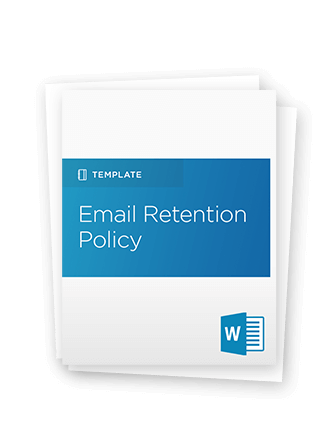‘Death of Email’ ? Nope, But Need for Archiving is Greater Than Ever

The long-rumored “death of email” has been a hot topic of discussion throughout the tech world and beyond for well over a decade now (“The Death of Email,” Slate, 2007). As more products such as Slack and Skype for Business grow in popularity, pundits continue to prophesy that email will eventually die.
So what is the truth? Are we moving toward an era of combined digital communications in which email, chat, texting and social media are combined into one hybrid technology tool?
The Case Against Email
The expansion of digitally collaborative networking has brought significant increases in productivity. Instant messaging, chat tools and social media have changed the way people interact by providing effective new methods of instantaneous communication.
Communications-based technology has transformed how we collaborate and manage our day-to-day responsibilities, and it is developing at a furious pace.
The success of platforms like Basecamp and Skype for Business has forced almost every organization to adopt some form of instantaneous communications platform geared toward workplace environments. Even Facebook, Google and Microsoft have created their own instant-communication platforms, specifically developed to boost the speed and efficiency with which we can communicate, whether we’re talking to co-workers in the same building or clients around the globe.
With the increasing pace of workflow, some would argue that the use of email has grown cumbersome; for some, flipping between more than one program has grown to feel incredibly inefficient. Oftentimes, the perceived formality of sending an email can be enough to dissuade us from using it.
Each wave of new interactive web tools has come with incessant speculation that they would render email obsolete, turning it into some sort of a “legacy” technology. These tools may have changed the way companies interact, both internally and externally, but have they truly eliminated the need for email? Every few years we see a new crop of headlines forecasting the forthcoming death of email. And yet, it persists.
Email as an Essential Tool for Business
In truth, most of us rely heavily on email throughout the work week. And email usage continues to increase, with some reports showing that over 90% of U.S.-based internet users have at least one email address registered to their name. A report by Radicati suggests that by 2019 there will be more than 2.9 billion email users worldwide.
Simply put, people are familiar with it and continue to be comfortable using it; we trust it to communicate in both our business and personal lives.
While its role may have diminished to some extent as the internet has evolved, it remains essential for the majority of people. Online banking, online shopping, booking a flight, even joining social media platforms like Facebook, Twitter or Instagram require an email address.
And email continues to evolve, becoming an ever-more efficient tool that can perform a variety of tasks and business processes needed in the workplace. It is useful for simple daily tasks, such as to-do lists and reminders. And it has become indispensable in marketing, used to share information with prospects, customers and vendors.
Email continues to be the most appropriate choice for business communication, carrying a level of formality most other platforms don’t have. It is also the most trusted, reliable source for record keeping in the workplace, perhaps in part because it has been around for so long. It provides a platform on which most of our daily tasks and business transactions are recorded, playing a critically important role in storing sensitive and valuable information.
The reality is that email has unique properties that new communication platforms do not possess, and it remains a foundational tool for collaboration that new communication apps and services eventually tie back to.
In truth, reports of the death of email have been greatly exaggerated — email is not going anywhere. Rather than replace email outright, most workplace collaboration tools link to some sort of email account, effectively combining all of a user’s platforms into one source.
With the development of these multi-platform resources has come increased regulation and stringent laws surrounding electronically based content, forcing organizations of all sizes to be more diligent in the way they manage, store and archive email messages. For example, the U.S. government considers its email messages to be official government records.
In this environment, it is more important than ever for organizations to archive their email communications to comply with regulations governing electronic communications. Failure to do so can expose organizations to risk of fines, lawsuits or worse.
Robust and thorough archiving technology can provide solutions to any legal challenges in ways that other technologies simply cannot. Email and social media archiving systems provide searchable access to historical records, limiting e-discovery costs and eliminating any worries should your company be wrapped up in litigation.
As email continues to evolve (and, yes, survive — probably well into the next millennium), the innovative archiving systems offered by Intradyn are also evolving to keep pace with both emerging technologies and new regulations.

